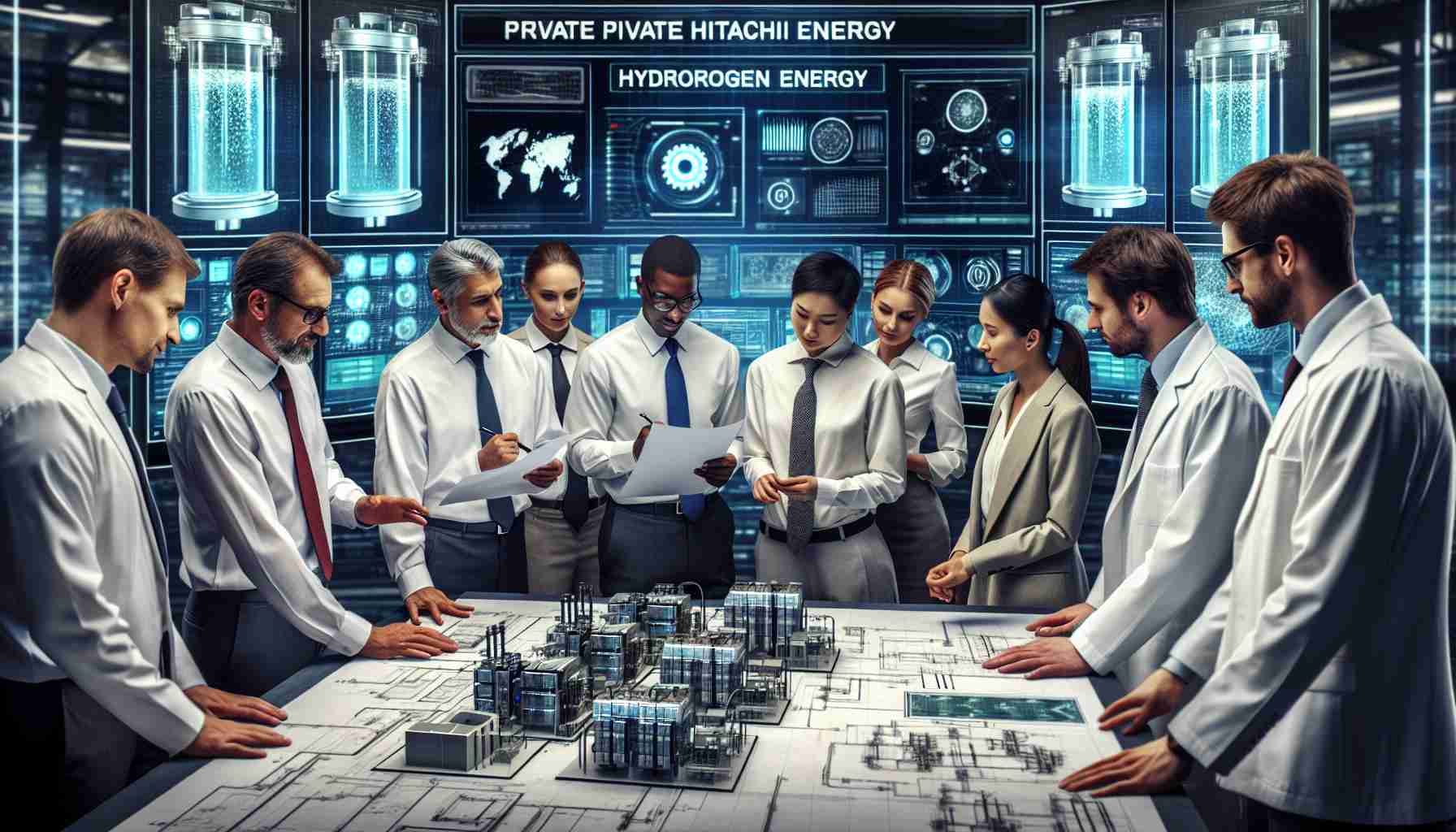Hitachi Energy has announced its partnership with GTI Energy, Frontier Energy, The University of Texas Austin, and other industry stakeholders and partners as part of the US Department of Energy’s ‘H2@Scale in Texas and Beyond’ initiative. This collaboration aims to revolutionize the use of hydrogen as a clean energy source.
The project will showcase various hydrogen production methods, including a vehicle refuelling station and a fleet of hydrogen fuel cell vehicles. Situated at the University of Texas JJ Pickle Research Center in Austin, Texas, the initiative will focus on exploring the efficiency and cost-effectiveness of generating hydrogen from renewable resources. By establishing one of the largest collections of renewable hydrogen production, onsite storage, and end-use technologies in a single location, this project sets the stage for wider adoption of hydrogen in reducing carbon emissions in Texas.
Anthony Allard, Executive Vice President and Region Head of North America at Hitachi Energy, expressed his pride in being a key partner in this groundbreaking initiative. Highlighting the significance of leveraging hydrogen to decarbonize challenging industries, he emphasized Hitachi Energy’s commitment to driving innovation and sustainability worldwide.
Clean hydrogen plays a vital role in the decarbonization of hard-to-abate sectors such as metals, fertilizers, chemicals, and oil and gas. Furthermore, it offers clean backup power solutions and electrifies remote construction sites. However, clean hydrogen production is an energy-intensive process that relies heavily on electricity. Hitachi Energy’s presence in the hydrogen value chain positions the company as a leader in power grids, providing essential services to different sectors, including utility, industry, and infrastructure.
As part of this collaboration, Hitachi Energy researchers and experts will actively contribute to the operation of demonstration equipment, installation of monitoring devices, and the development of procedures and applications. Their involvement aims to optimize the overall system performance, with a focus on power quality, system design, and site operation. By gathering critical data and insights, Hitachi Energy and the H2@Scale team will pave the way for future large-scale hydrogen plants.
Additionally, the project teams will conduct feasibility studies to assess the potential for scaling up hydrogen production and utilization in the Port of Houston and the Gulf Coast region. They will explore opportunities to leverage existing hydrogen pipelines, identify potential hydrogen users, and assess the environmental and economic benefits of hydrogen deployment.
The partnership between Hitachi Energy and the ‘H2@Scale in Texas and Beyond’ project represents a significant step towards a more sustainable future. By combining expertise and resources, this ambitious endeavor aims to accelerate the adoption of hydrogen as a key contributor to decarbonization efforts.
Frequently Asked Questions (FAQs) about Hitachi Energy’s Partnership in the ‘H2@Scale in Texas and Beyond’ Initiative:
1. What is the ‘H2@Scale in Texas and Beyond’ initiative?
The ‘H2@Scale in Texas and Beyond’ initiative is a collaboration between Hitachi Energy, GTI Energy, Frontier Energy, The University of Texas Austin, and other industry stakeholders. It aims to revolutionize the use of hydrogen as a clean energy source by showcasing various hydrogen production methods and exploring the efficiency and cost-effectiveness of generating hydrogen from renewable resources.
2. What will the project showcase?
The project will showcase various hydrogen production methods, including a vehicle refuelling station and a fleet of hydrogen fuel cell vehicles. It will also establish one of the largest collections of renewable hydrogen production, onsite storage, and end-use technologies in a single location.
3. Where will the project be situated?
The project will be situated at the University of Texas JJ Pickle Research Center in Austin, Texas.
4. What is the goal of the project?
The goal of the project is to pave the way for wider adoption of hydrogen in reducing carbon emissions in Texas and explore opportunities for scaling up hydrogen production and utilization in the Port of Houston and the Gulf Coast region.
5. What is Hitachi Energy’s role in the partnership?
Hitachi Energy is a key partner in the ‘H2@Scale in Texas and Beyond’ initiative. Their role includes actively contributing to the operation of demonstration equipment, installation of monitoring devices, and the development of procedures and applications. They aim to optimize the overall system performance and gather critical data and insights for future large-scale hydrogen plants.
Definitions:
– Hydrogen: Hydrogen is a chemical element with the symbol H and atomic number 1. It is the lightest and most abundant element in the universe. It is considered a clean energy source as it produces water when used in fuel cells or combustion processes, with no harmful emissions.
– Decarbonization: Decarbonization refers to the reduction or elimination of carbon dioxide emissions to mitigate climate change and reduce the carbon footprint.
– Hard-to-abate sectors: Hard-to-abate sectors are industries or sectors that are difficult to decarbonize due to the nature of their operations, high energy requirements, and limited availability of low-carbon alternatives. Examples include metals, fertilizers, chemicals, and oil and gas industries.
Suggested Related Links:
– Hitachi Energy: Official website of Hitachi Energy, providing information about their work in the energy sector, including hydrogen solutions.
– US Department of Energy: Official website of the US Department of Energy, where you can find information about various energy initiatives and programs.
– The University of Texas Austin: Official website of The University of Texas at Austin, where you can learn more about their research and programs related to energy and sustainability.
